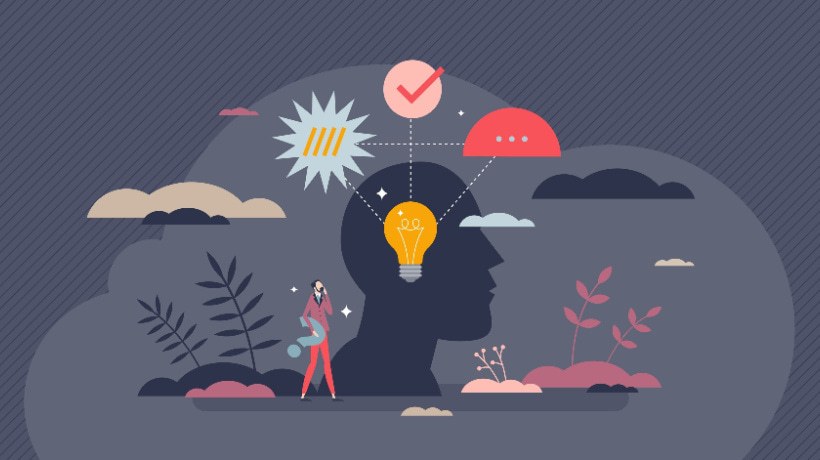Top 10 Psychology Books For eLearning Professionals
Knowing HOW your audience learns is just as important as knowing WHAT they need to learn. One of the most valuable resources that eLearning professionals have at their disposal, especially when it comes to understanding learning behaviors and cognitive processes, is psychology books. Here are 10 titles that you may want to add to your professional to-read list.
- Thinking Fast and Slow (by Daniel Kahneman)
This is a great read for eLearning professionals who want to learn more about how learners think and why they exhibit certain behaviors. The author is an Economics Noble Prize winner. However, this book is an excellent resource for educational psychology. Understanding human cognitive processes and why we react to specific triggers is essential in the eLearning industry, and this book explores this topic at length. - Drive (by Daniel Pink)
It’s been proven time after time that motivation is a key part of the learning process. Your learners must be driven and dedicated if you want them to actively engage in the eLearning experience. This book delves into the intricacies of human motivation, offering insight into what really motivates people and why. It also includes an abundance of helpful research on the subject of motivation. - Psychology of Learning and Behavior, 5th Edition (by Steven J. Robbins, Barry Schwartz, & Edward A. Wasserman)
This psychology book covers Pavlovian conditioning, operant conditioning, and comparative cognition instructional techniques. Rather than discussing just the basic principles and ideas, readers are treated to an enlightening look at the problems and issues that currently surround these behavioral theories. In essence, the fifth edition of this popular title stresses the importance of researching new material, then forming connections between adult learning theories and real world challenges. - Perspectives on Thinking, Learning, and Cognitive Styles (by Robert J. Sternberg & Li-Fang Zhang)
The main viewpoint of this psychology book is that learning styles, including cognitive styles, are preferences rather than inherited abilities. It’s a must-read for eLearning professionals who want to explore cognitive behaviors, as it contains a great deal of research regarding learning styles and theories. You will also find information on how to apply theoretical perspectives in your eLearning course design. - Brain Rules: 12 Principles For Surviving and Thriving at Work, Home, and School (by John Medina)
This eLearning psychology book is packed with research regarding how the brain functions and acquires knowledge. Every section also features real world applications for the 12 principles, which can help eLearning professionals integrate the ideology into their eLearning course strategy. - Make It Stick: The Science of Successful Learning (by Peter C. Brown)
This is actually one of the more controversial and avant-garde items on the list, as it offers a fresh, and somewhat unconventional, perspective on popular learning styles and study behaviors. It even discusses why some of the routines and principles we use today are counterproductive to knowledge retention, especially study habits such as cramming for exams and basic repetition. The author then delves into how learners can improve these behaviors and skills through self-testing and challenging themselves during their learning sessions. - Learning and Cognition: The Design of the Mind (by Michael E. Martinez)
Learning and Cognition explores the intricate design of the brain and how that design helps or hinders educational endeavors. At its core, this psychology book is about human learning behaviors, theories, cognitive process, and human intelligence. In fact, it discusses the human brain through the perspective of many different theories, which is ideal for eLearning professionals looking for more information on how the brain responds to popular Instructional Design approaches. - Mindsets in the Classroom: Building a Culture of Success and Student Achievement in Schools (by Mary Cay Ricci)
If you believe that mindset is an essential part of a successful eLearning experience, then this book is for you. It stresses the importance of developing a dedicated and resilient mindset that focuses on hard work and challenge in the classroom. You will also find a planning template, detailed description of the “growth mindset culture”, and tips on how to integrate differentiated instruction into your eLearning course design . - Making Thinking Visible: How to Promote Engagement, Understanding, and Independence for All Learners (by Ron Ritchhart, Mark Church, and Karin Morrison)
“Visible Thinking” is the subject of this educational psychology book, which explores the research-based teaching approach that started with Harvard’s Project Zero. This approach centers on thinking routines, questioning, and step sequencing to encourage learners to express their unique viewpoints and document their ideas, as well as reflect and challenge their presuppositions. - The Power of Habit: Why We Do What We Do in Life and Business (by Charles Duhigg)
The Power of Habit’s author, Charles Duhigg, is a New York Times business reporter who relies on scientific studies and human behavior to explore the topic of nature of habits, and the power they have over us. The book centers on why we develop certain habits, as well as our ability to change them to better our lives. Even though the book does have a slight business slant, it’s an ideal read for eLearning professionals who want to know more about the nature of human habits, including learning habits.
If you want to learn more about how the brain works and why learners absorb certain pieces of information more rapidly than others, than you’ll definitely want to check out the titles on this list. Are there any must-reads that you recommend? If you’d like to share, please feel free to leave title suggestions in the comments.
Looking for a book that can help you get started in the Instructional Design industry? Access our free eBook How to Become an Instructional Designer, which features insights and tips from eLearning’s top developers and designers.







